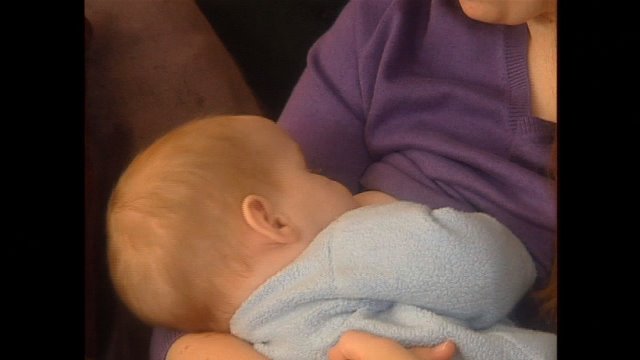While the medical benefits of breastfeeding for helping newborns fight infections and helping pre-term infants get stronger are fairly well established, the long-term impact is much less so.
While new mothers may debate what they believe to be long-term benefits, a new study published in the journal Pediatrics finds that breastfeeding has little impact on long-term cognitive development and behavior.
The study followed 7,478 Irish children born full term, from the time they were 9 months old. They were then evaluated at three years and again at five years of age.
At three, the children’s parents were asked to fill out questionnaires evaluating vocabulary and problem-solving skills to assess cognition and behavior. At age five, both parents and teachers were asked the same questions.
While the researchers found that those children who were breastfed for six months or more had lower rates of hyperactivity and improved problem-solving skills at three, those differences were negligible by the time the child turned five.
Short-term benefits
“I think [the study] fits well in the body of literature that long-term benefits of breastfeeding look a whole lot smaller or non-existent if you properly control for your confounding variables,” said Dr. Brooke Orosz, a professor of mathematics at Essex County College and adviser to the organization Fed is Best. Orosz was not involved with the study.
Orosz cited that while the study did not take into account maternal IQ, it was able to consider and control for education level and income, which were good proxies.
Considering other factors
Like many other breastfeeding studies, long-term benefits have been associated with breastfeeding, but once socio-economic factors such as education and income are accounted for, the differences between those children who were breastfed and those who weren’t are negligible.
“The easy question — do kids who are breastfed have better outcomes? The answer is yes. The difficult question is: is it breast milk that improves their brain or is it that growing up with parents who are better educated and have better incomes makes a difference?”
While for many new mothers there may be a debate about whether to breastfeed or not, Nancy Hurst, director of Women’s Support Services at Texas Children’s Hospital Pavilion for Women said that while breastfeeding has many benefits, what was key was nurturing a relationship between mother and child.
“You need to just enjoy the relationship — that is most important to nurture the mother-baby relationship. Even if at times that doesn’t mean exclusive breastfeeding,” said Hurst. Hurst is also an international board certified lactation consultant.
Orosz said that for many soon-to-be-newbie parents, it’s important to read the literature and really understand what is being evaluated when it comes to breastfeeding.
“Parents need to hear that a lot of it is confounding variables before they are in that situation — when they are able to process it rationally,” she said and added “I think it shouldn’t be a debate.”
And for those parents who are in the thick of just having had a newborn, hopefully this advice will be heard.
